

September seminar of the Forum of Hellenistic and Roman Philosophy
The Forum of Hellenistic and Roman Philosophy cordially invites you to its next seminar on An application in time of pandemic of the ancient Stoics' social oikeiōsis (affiliation) to other humans by Prof. Sir Richard Sorabji (University of Oxford) on September 30, 2021 at 12.00 pm New York / 5.00 pm Cambridge / 6.00 pm Budapest / 7.00 pm Athens time.
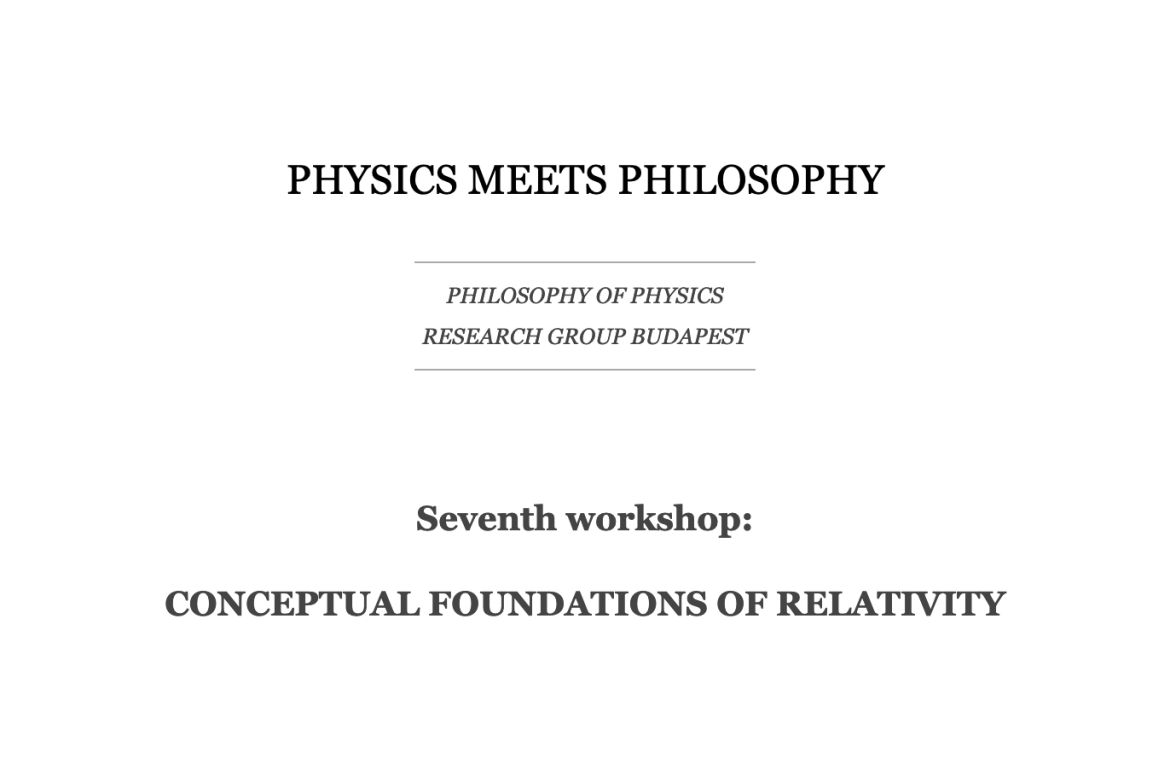
Physics meets Philosophy 7: Conceptual Foundations of Relativity
The Research Group for Philosophy of Physics, Institute of Philosophy, RCH, cordially invites you to its interdisciplinary workshop on
Physics Meets Philosophy 7: Conceptual Foundations of Relativity
Venue: 4 Tóth Kálmán str., 1094 Budapest, B.7.16. (seminar room)
Date: 9 September 2021 (Thursday)
For details see the webpage of the workshop.
You can join by clicking on the link below:
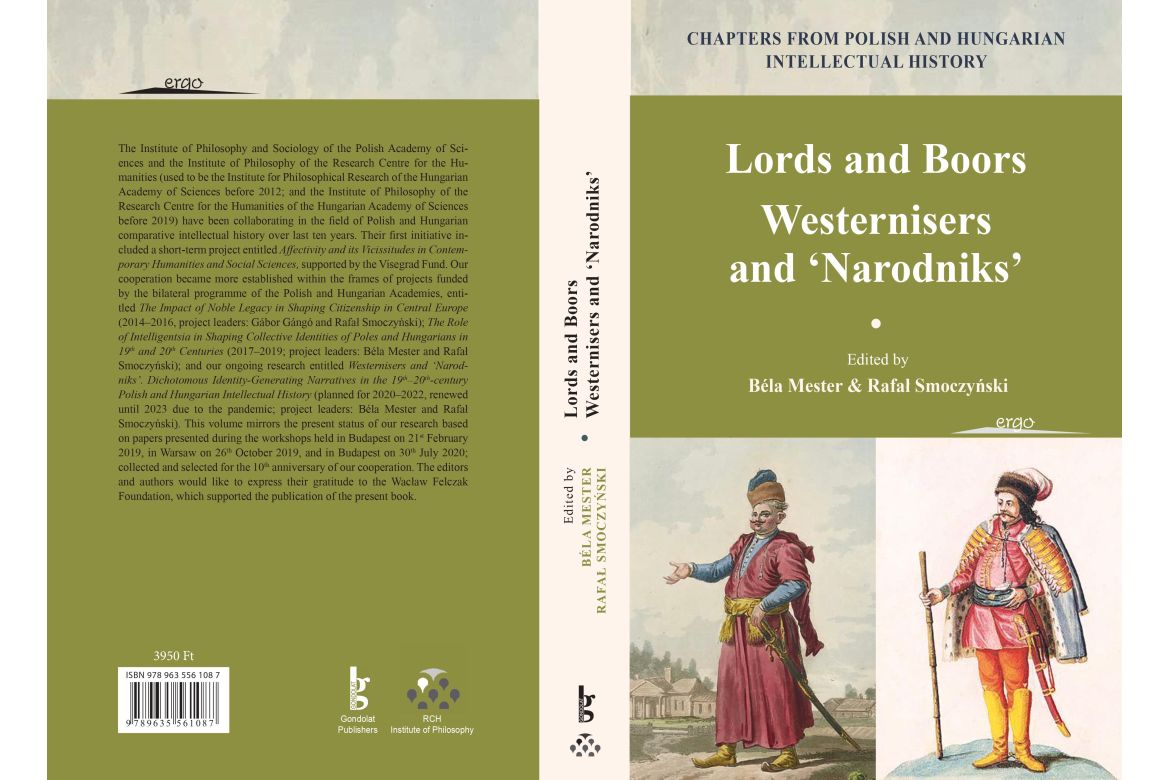
New Chapters from Polish and Hungarian Intellectual History
The Institute of Philosophy of the Research Centre for the Humanities (IP RCH) & the Institute of Philosophy and Sociology of the Polish Academy of Sciences (IFiS PAN), cordially invite you to the upcoming Warsaw–Budapest hybrid workshop entitled New Chapters from Polish and Hungarian Intellectual History.
The workshop is organised by the opportunity of the publication of the volume entitled Lords and Boors – Westernisers and ‘Narodniks’ (eds. Béla Mester Rafał Smoczyński; IP RCH – Gondolat Publishers, Budapest, 2020).
Date: Monday, 30 August 2021
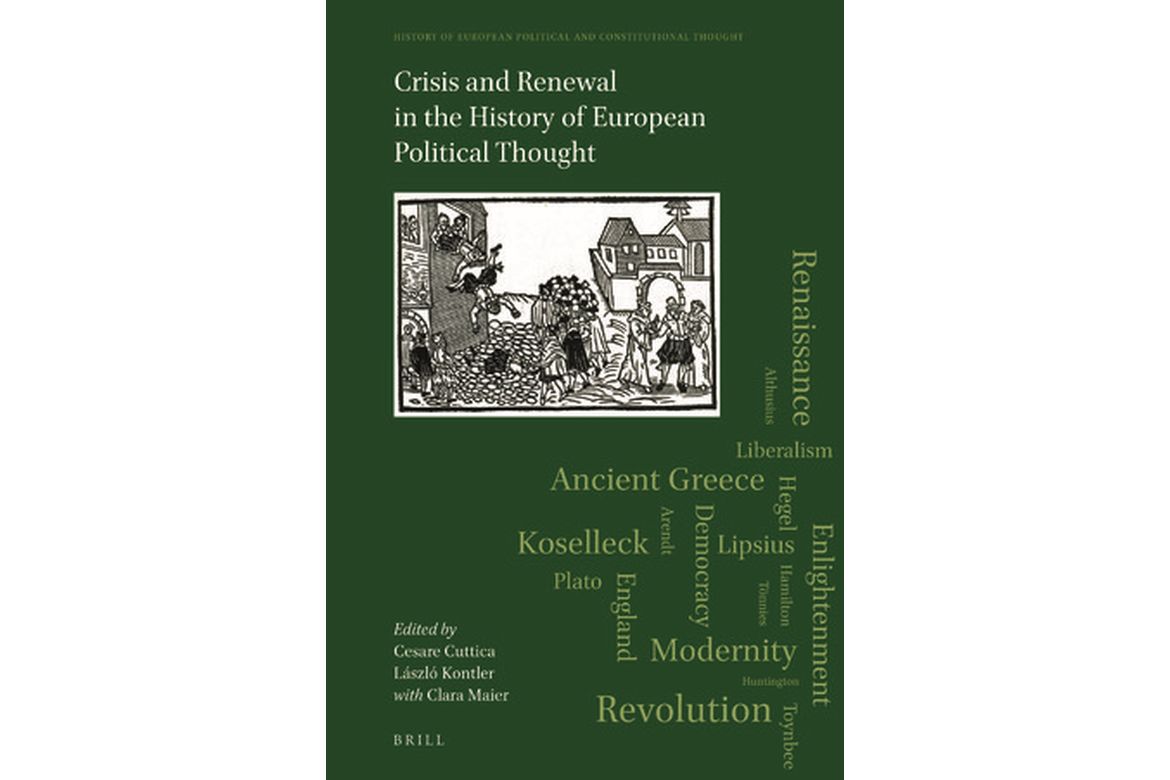
Ferenc Hörcher's chapter on Althuius in a collected volume published by Brill
Ferenc Hörcher published a chapter on Johannes Althusius in a collected volume edited in Brill's series History of European Political and Constitutional Thought. The title of the collected volume is Crisis and Renewal in the History of European Political Thought. Ferenc Hörcher's chapter is entitled: Overcoming Crisis in an Early Modern Urban Context. Althusius on Concord and Prudence.
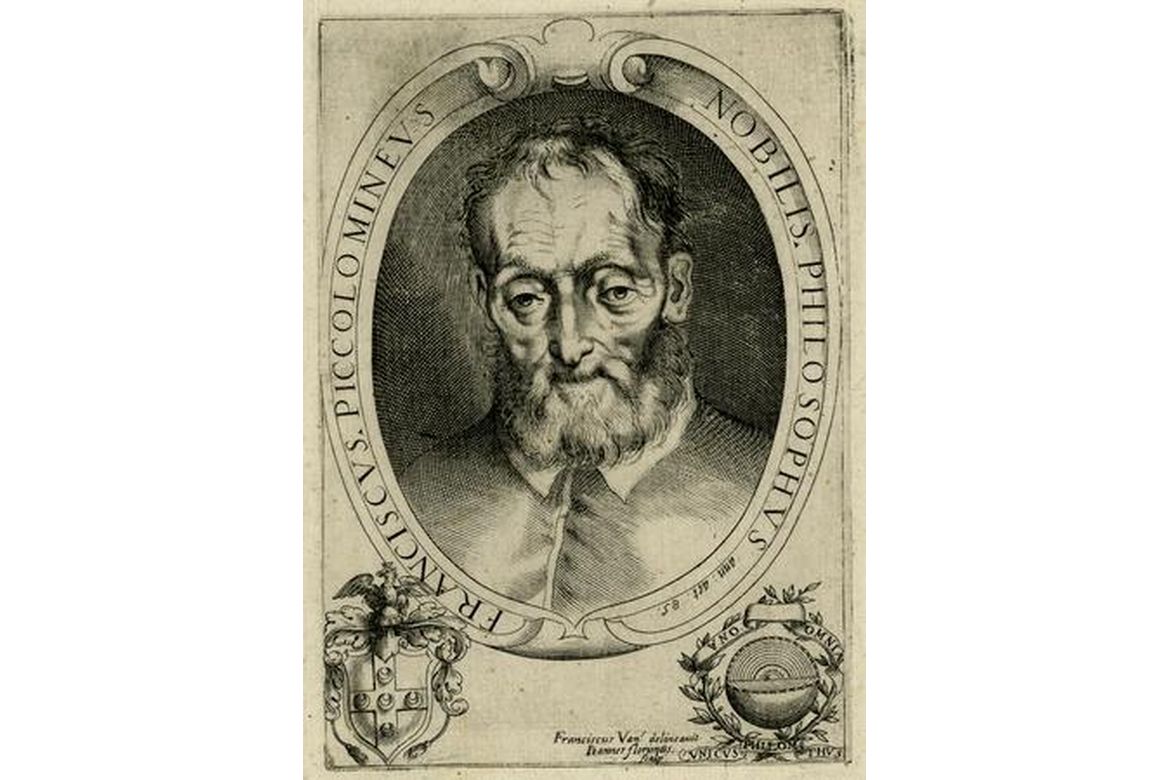
Ferenc Hörcher’s Talk in Bergamo, Italy on MacIntyre, Piccolomini and Renaissance Aristotelians
Ferenc Hörcher presented a paper at the 14th Annual Conference of the International Society for MacIntyrean Enquiry (12-15. July , 2021). The online conference was organised this year by the University of Bergamo.
The title of Hörcher’s paper was: “Was Aristotle a Political Realist?” MacIntyre, Francesco Piccolomini and Renaissance Aristotelianism”.
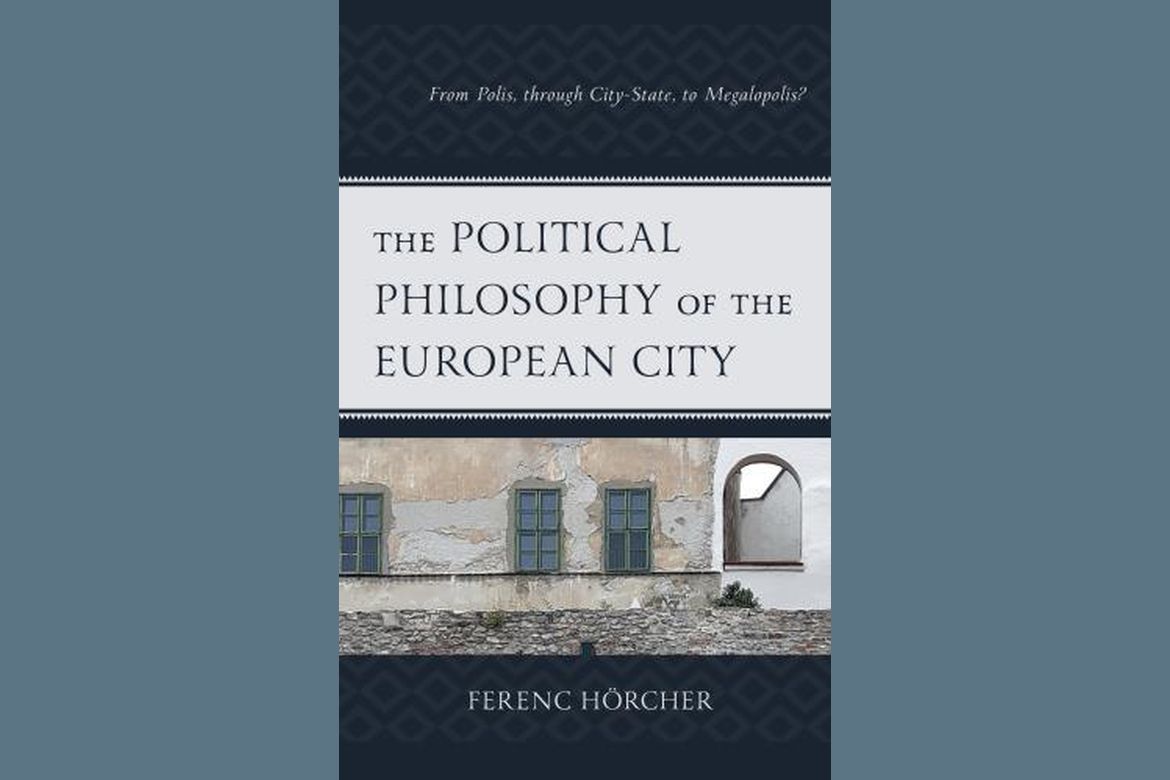
Ferenc Hörcher’s new book was published at a US publishing house
The new monograph of Ferenc Hörcher, entitled
The Political Philosophy of the European City. From Polis, through City-State, to Megalopolis?
was published at the end of May 2021 by Lexington Books, Rowman and Littlefield, in its series Political Theory for Today.

May seminar of the Forum of Hellenistic and Roman Philosophy
The Forum of Hellenistic and Roman Philosophy cordially invites you to its next seminar on The Epicurean Notion of Epibolé by Prof. Voula Tsouna (UC Santa Barbara) on May 27, 2021 at 12.00 pm New York / 5.00 pm Cambridge / 6.00 pm Budapest / 7.00 pm Athens time.
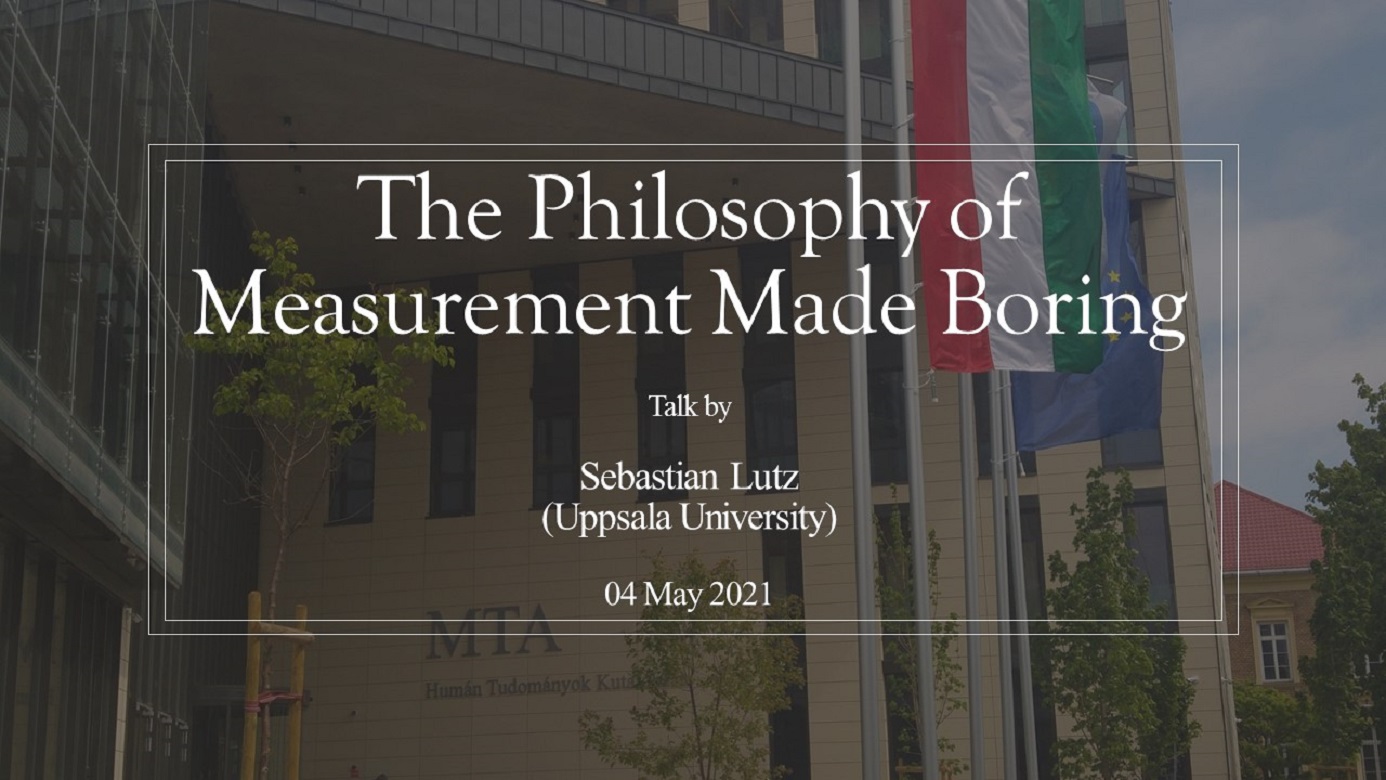
Talk by Sebastian Lutz
The Institute of Philosophy, RCH, cordially invites you to the upcoming talk
Sebastian Lutz (Uppsala University)
The Philosophy of Measurement Made Boring
The talk will be online.
Abstract:
I suggest that standardization of quantities is a pragmatically and vaguely distinguished special case of concept formation and that measurement is an inference from empirical results about a standardized quantity given some background assumptions (including laws of nature). The measurement debate is thus but a special case of the debates about concept formation and inference, and the logical empiricists’ positions on these topics can be immediately applied to it. Their positions provide straightforward solutions to alleged problems of conventionalism in the philosophy of measurement, for instance the influence of empirical results on standardization, different methods of measuring the same quantity, improvements of measurements and standardizations, and the roles of theoretical assumptions and of models in standardization and measurement.
More Articles …
Page 13 of 59


